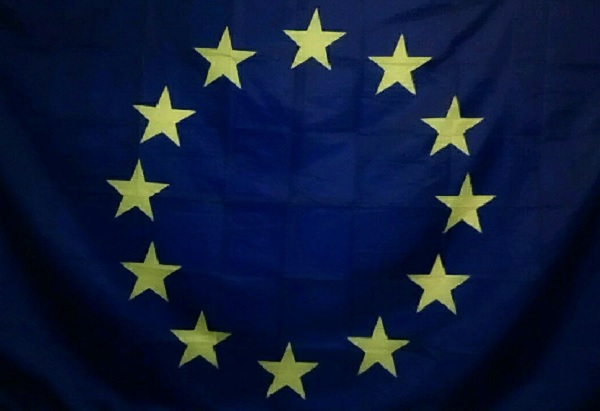 EU Flag;
Credit: Jazmin Campbell
EU Flag;
Credit: Jazmin Campbell
Yesterday, I received a letter from Luxembourg’s Foreign Minister, Jean Asselborn. On another occasion, I may have considered this an honour… had it not been a letter warning me of the potential consequences of Brexit on my residence status in Luxembourg.
Luckily for me, as a Northern Irish citizen, I have dual nationality: British and Irish. As outlined in Mr. Asselborn’s two-page letter, this means that my rights as an EU national remain unaffected regardless of the outcome of the Brexit fiasco. I am thus certain of my continued residency in Luxembourg- for once, it pays to be Northern Irish! Other Brits here aren’t so lucky, however. Some have lived in the Grand Duchy for many years and have already acquired the Luxembourgish nationality, others have not. Having only lived here for two-and-a-half years myself, without my Irish passport I would have been one of several thousand Brits in Luxembourg and across the EU living in limbo right now.
Shall I stay or shall I go?
As I write this, the European Council is convening in Brussels to once again, and perhaps (although doubtfully) for the last time, discuss the latest developments on Brexit. Almost three years have passed since that fateful referendum and yet we appear no closer to reaching a deal. Just last week, Theresa May asked the EU for yet another extension, to be accepted or rejected at today’s meeting. Today also saw the number of signatures on the by-now famous “Revoke Article 50” petition reach 6,073,380 (and counting). Meanwhile, dedicated Brexiteers are calling the prolongation of Brexit negotiations and the British Prime Minister’s endless extension requests a “national betrayal”. There are calls for an independent Scotland. The shadow of a potential hard border still looms over Ireland, threatening the very fragile peace process secured in the Good Friday Agreement. And, if anything, it looks like the (dis)United Kingdom may soon be crashing out of the EU without a deal. The situation has become nothing short of a Greek tragedy.
European Elections: will May see the end of May?
Adding to this chaos is the now very real possibility that the UK will be participating in the upcoming European elections on 23 May- unless of course, we miraculously strike a deal (or depart in a disorderly Brexit) before then. In the case that we do take part in this year’s elections, there is the fear that the pro-Brexit parties will (ironically) prevail once again, thus risking the very fabric of the European Parliament. It is no secret that populism and nationalism are on the rise, not only in the UK but across Europe. Therefore, whether Britain leaves the EU before 23 May or not, it is now as important as ever (if not more so) that high numbers of European voters participate in these elections. Whilst Luxembourgers and Belgians traditionally show up in their masses to exercise their democratic right (going to vote is compulsory in these countries), voter turnout in the rest of Europe paints a very different picture. Indeed, the UK has consistently been one of the member states with the lowest turnout rates at the European elections. The result? In the last elections, held in 2014, the UK Independence Party (UKIP) won the most votes, securing 24 MEPs. If such a development were to occur again this year, in the midst of Brexit frustrations, who knows what could happen to the integrity of the European Parliament, and thus the EU as a whole? By voting for the new European Parliament, voters can help protect and improve the EU and perhaps even dispel the pro-Brexit argument that it is made up of undemocratically elected leaders in Brussels.
As a reminder, if the UK is to participate in the upcoming European Elections, EU citizens registered in the UK can vote for British MEPs and British citizens registered in another EU member state can vote for that country’s MEPs. All seems fairly democratic to me…









